In a gamble to preserve his power and legacy in the region, and to wield personal influence on the international stage, Iraqi Kurdistan’s leader, Mas’oud Barzani, makes some bold Machiavellian-like moves.
Now this is not the end. It is not even the beginning of the end.
But it is, perhaps, the end of the beginning.
– Winston Churchill
After engaging in a convoluted scheme, that endangered the frail stability of a region, the quest of a people, and the integrity and unity of a nation, Mas’oud Barzani resigned as President of Iraqi Kurdistan.
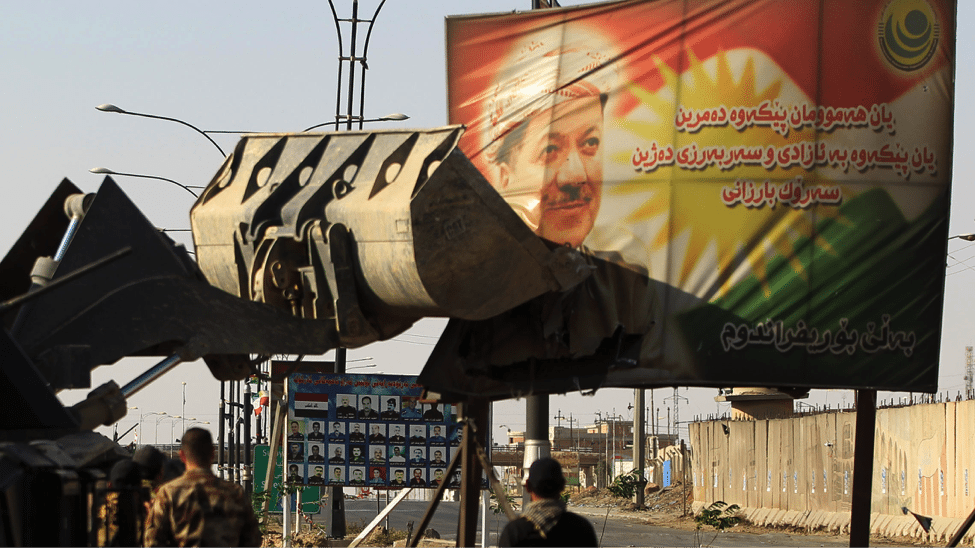
(AHMAD AL-RUBAYE / AFP)
Did Barzani overplay his hand?
They were brothers in arms against a common enemy too remorseless for comprehension. Now, with that enemy nearing defeat, former allies have become adversaries.
Amidst the smoldering ruins of the battlefield in the still-ongoing war against the Islamic State, Iraqi and Kurdish forces are reluctantly interlocked against one another in battle. Northwest of Mosul, from positions previously held by the Islamic State, Iraqi Army artillery now fire high explosive projectiles at Kurdish positions.
Iraqi government affiliated forces have now begun to advance against Kurdish Peshmerga positions inside the strategic Fishkhabour triangle, a central logistic trade and travel hub, where the borders of Turkey, Iraq and Syria converge.
With the conflict against the Islamic State resulting in the displacement of thousands of civilians, crippling damage to the local infrastructure, and further destabilization of an already fragile oil industry, the Iraqi nation faces a fight that no one truly wants. Worse, there is a renewed fear of war between brothers. Civil war beckons.
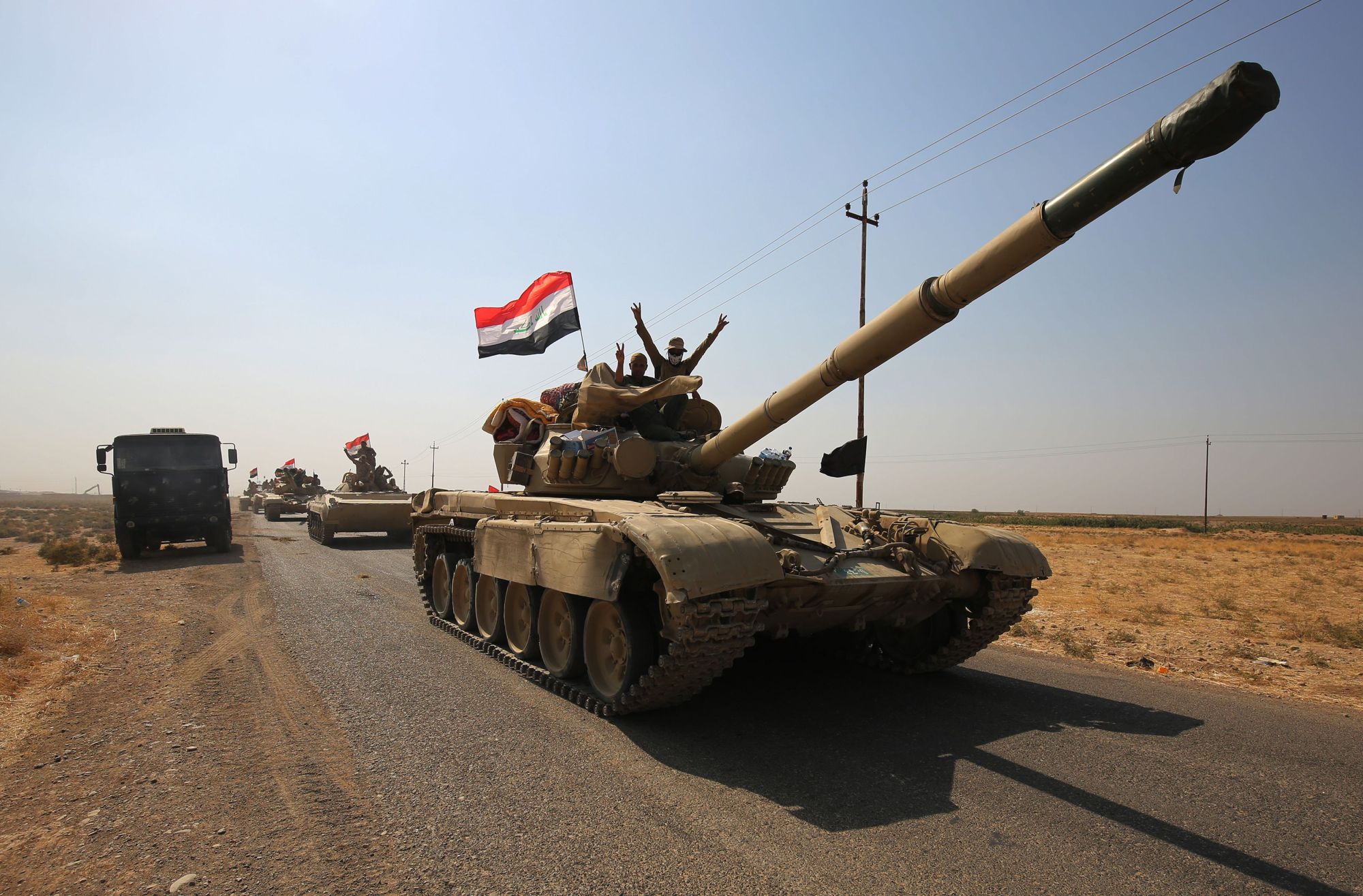
How did it come to this?
In actions reminiscent of the plot lines of the television shows House of Cards and Game of Thrones, Mas’oud Barzani initiated risky chess moves to preserve his personal and family influence on Kurdish affairs. Such moves now threaten to destroy everything, including the Kurdish people as a whole, along with his own legacy. By instigating a referendum declaring an independent Kurdish nation, Barzani has now triggered increasingly volatile responses from several regional parties that include his own trade partners, such as Turkey, and the Kurds’ ally against the forces of Islamic extremism, the Iraqi government.
On October 29, despite the expiration of his term in office on November 1, Barzani announced that he would not seek an extension, effectively resigning. The announcement has observers questioning Barzani’s motives. Was this an attempt to utilize a democratic process to gain more favor with Western allies? Could this provide Barzani with the means to extend his personal influence beyond the region into world politics?
I will continue to serve my people and I have been, before, during and after the Presidency, the same Masoud Barzani, the same Peshmerga
— Masoud Barzani (@masoud_barzani) October 29, 2017
An examination of Barzani’s family tribal history, the newer Kurdish factions that threaten his dominance, and the lessons learned from the example of Yasser Arafat and his Palestinian Liberation Organization (PLO), may provide hints of big-picture strategy at work.
The Referendum
On September 25, an overwhelming majority of the predominantly Kurdish population in Northern Iraq, commonly referred to as Iraqi Kurdistan or Southern Kurdistan, voted to declare independence and create their own state, Kurdistan. More than 92% of roughly 3 million people voted ‘yes’ on the Kurdistan Regional Government (KRG)-proposed referendum. With this vote the Kurdish people of Iraq thought they had, at long last, created their nation; something the Kurds – currently spread across Iraq, Iran, Turkey and Syria – have sought for over a century.
The referendum surprised no one. Barzani had used referendums as a go-to move during negotiations with Baghdad for years. The negotiation tool became ever more potent after a non-binding 2005 referendum of independence, which resulted in 98% of voters favoring an independent Kurdistan. The 2017 referendum was originally reported as yet another non-binding one, but Barzani soon saw it as suitable to make the vote ostensibly binding for a variety of reasons.
The September 25, 2017 referendum had been in the making since April. At a June 7th meeting of the Kurdistan Democratic Party (KDP) and the Patriotic Union of Kurdistan (PUK), under the leadership of Barzani, a date was set. The US and the UK urged that it be tabled until a more suitable time – the focus being fighting the Islamic State. With 10 days to go before the vote, Iraq’s Supreme Court ordered its suspension to examine its constitutionality. Barzani responded by publicly vowing to go ahead in spite of the decision.
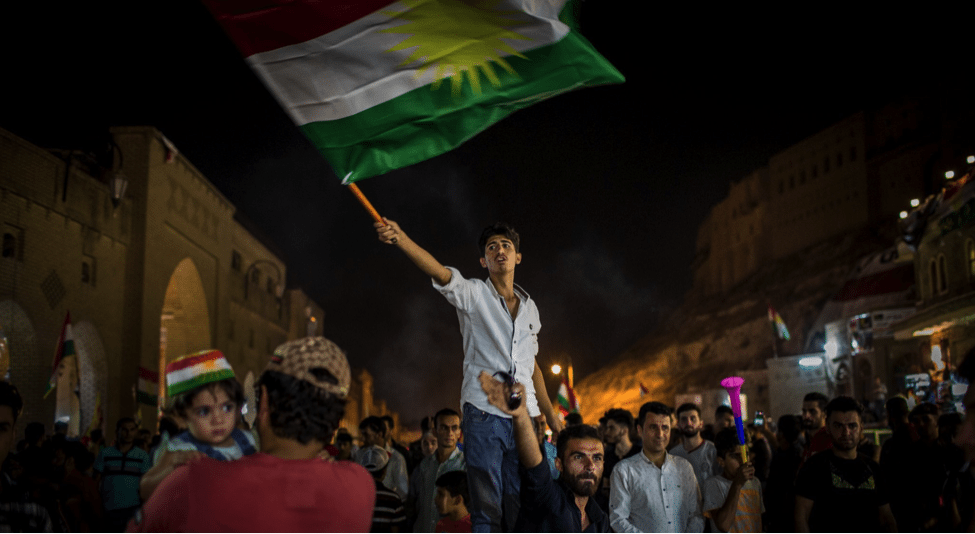
Now, with the referendum complete, those same allies have tried to remain neutral, fearing any action would be detrimental to their interests. The Kurds and the Iraqis have benefitted from immense investments by the West, both militarily and public relations wise, and they occupy irreplaceable spheres of influence. Damage to either side’s tactical abilities and public image would be highly detrimental to Western efforts to eliminate the militant threat of the Salafist-Jihadist Islamic State, causing the endeavor to grind to a halt. With both warring sides being of vital importance to the West, the US must play the miscast role of peacemaker.
Meanwhile, Western media outlets have struggled to cover the situation, having no clear party to designate as “the bad guys.” On the one hand, is the appearance of a conflict-riddled nation seeking to protect its integrity and prevent further degradation via a spiral of never-ending violence. On the other, a long-suffering and continuously-betrayed ethic group seeks the holiest of grails, freedom and sovereignty.
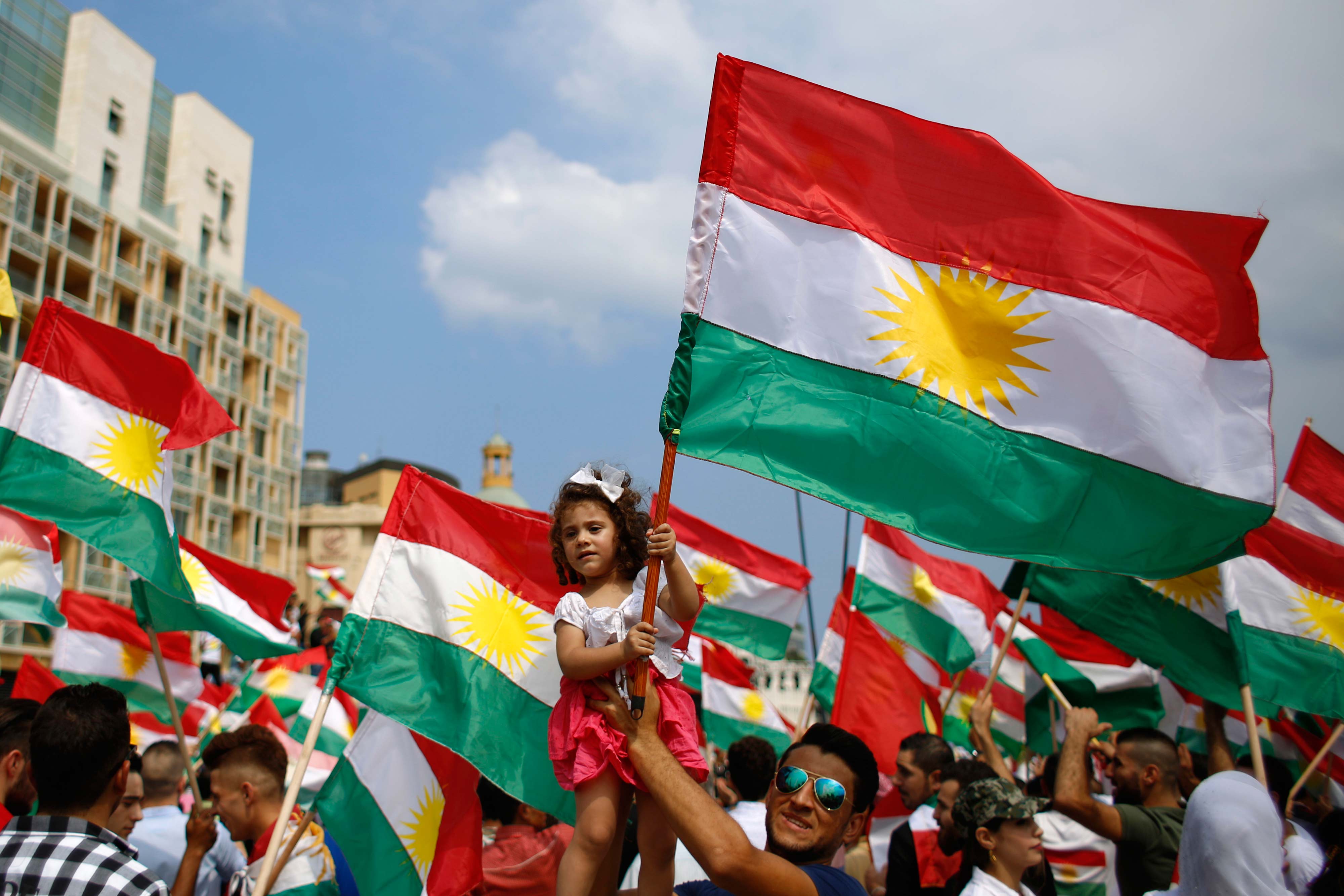
Predictably, the September referendum came under immediate criticism even before the polls had closed. Its main detractor, the Iraqi central government in Baghdad, immediately disputed its legitimacy. Within days, Baghdad ordered the airspace over the Kurdish federal region closed and deployed troops to the outlying areas of the region. Iraq’s main objective was to retake the oil rich province of Kirkuk and its namesake capital, which had fallen under KRG control when it was liberated from the Islamic State. The KRG government in Erbil responded in kind, rushing troops towards the new Kirkuk frontline.
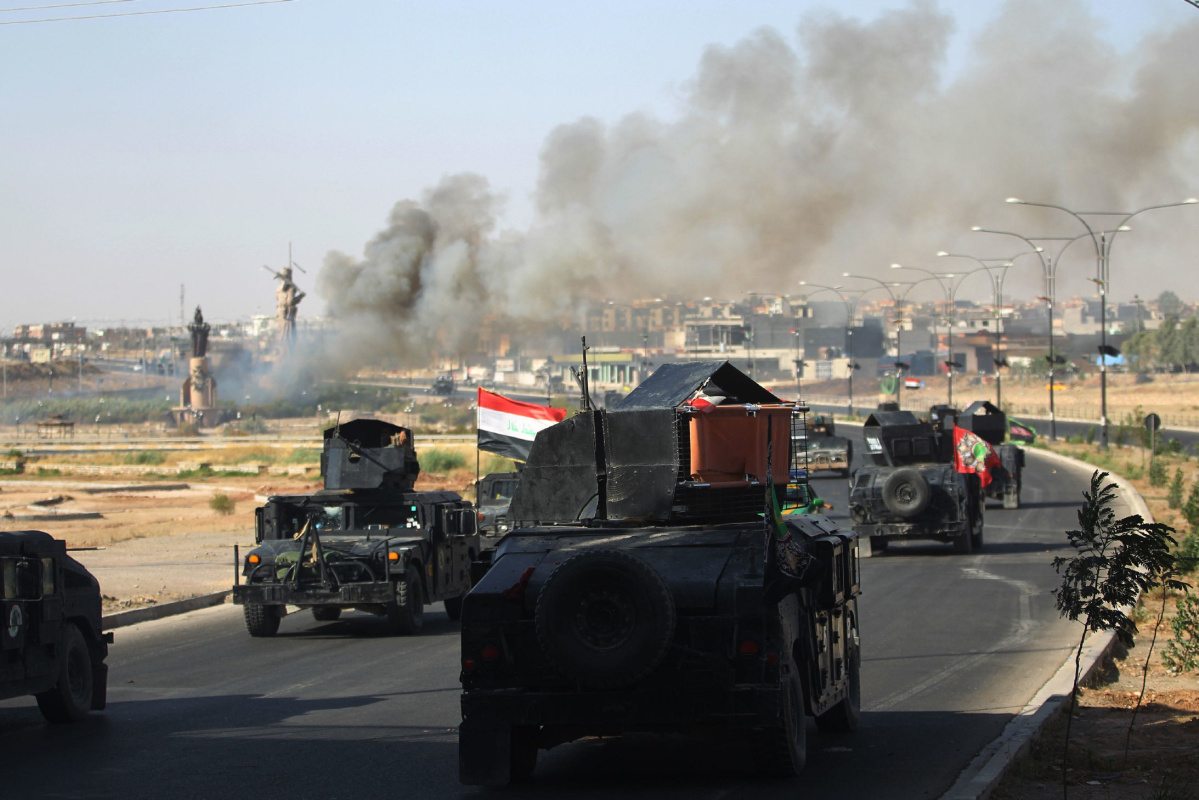
Why do something for one good reason,
when you can do it for fifty reasons?
Nuances
In my early career as a field analyst, I had the great fortune of working alongside a notable intelligence veteran field-analyst-turned-contractor. The man was full of cynical tidbits of information, insights, and quotes. One of the better and more succinct one liners I quickly learned was, “Why do something for one good reason, when you can do it for fifty reasons?”
In a world where everything is, in essence, shades of gray, where right can easily be made wrong, and wrong can more easily be made to look right, it all boils down to narratives and agendas. The easily digested and sanctioned narrative for the Kurdish-Iraqi conflict is that of a noble cause for freedom, colliding with the pragmatic need to maintain the integrity of a struggling nation. But this is merely one out of many, and a small one at that. Reality is significantly more nuanced.
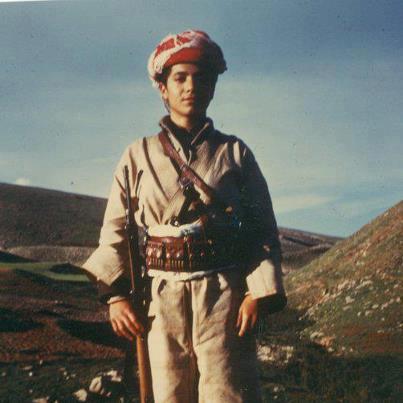
One cannot become a prevailing and surviving tour de force in the Middle East without being a cynical, shrewd operator. Mas’oud Barzani was born in the mold of a defining Kurdish leader, and he knows very well how to control narratives. Raised in the old Middle Eastern cult-of-personality school that studied under Egyptian President Gamal Abdel Nasser, he also learned to manipulate the media by the example of Palestinian resistance leader, Yasser Arafat.
Barzani knew that by merely suggesting the pursuit of a binding referendum of independence, he could instill fear and doubt both throughout the region and internationally; the fear being that any serious attempt to create a Kurdish nation in northern Iraq would fracture the already fragile national identity of Iraq, disrupt vital trade routes, and throw the local oil industry into disarray. The result would be a regional security crisis. Barzani’s true bargaining chip.
The Barzani Gambit
The referendum was never likely to gain much favor from neighboring Arab states, and considering the already ongoing turmoil on the ground, Barzani knew full well that the international community could not truly back his initiative towards independence. The cynical reality is that Barzani knew that further violent conflict was always the likeliest outcome if the matter of Kurdish independence was pushed, and that any regional pseudo-supporters would only be supporting it for blatant self-interests.
So what brought him to even try?
Enter the Islamic State
When the Islamic State broke away from its parent organization, al Qaeda, in 2013, it quickly emerged as an aggressive and belligerent threat to the entire region. Not even the relatively compatible regional state operators were safe. Indeed, the Islamic State was a dog that would gladly bite the hand that fed it.
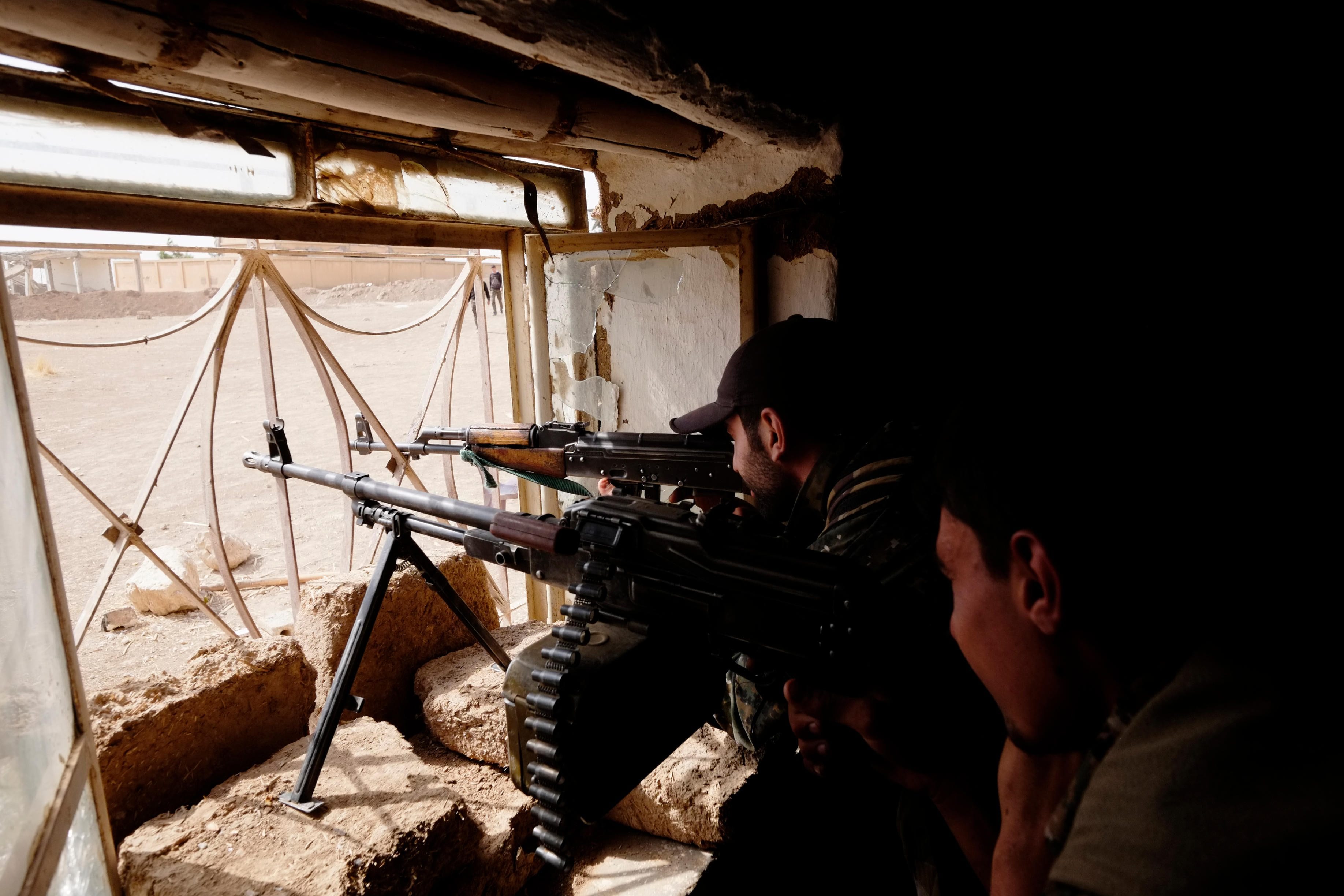
With the Syrian civil war creating a security and infrastructure vacuum into which the Islamic State could flow and prosper, the group successfully took and held the majority of the Anbar Province in January 2014, and continued its advances. By June 2014, the group had taken the Iraqi city of Mosul, only 50 miles from Erbil, the KRG capital. With the Iraqi military caught somewhat unprepared, it had to regroup its forces, drawing its numbers from areas where other affiliated militia forces could take its place, to combat the Islamic State’s advancements where necessary.
Seeing the Islamic State forces moving in on Tikrit, a central logistics hub and part of the main route towards Baghdad, the Iraqi military began drawing forces from nearby Kirkuk province. This left the Kurdish region of Iraq with a heavily saturated security perimeter. As such, the KRG began expanding its tactical perimeters, creating a security buffer, which quickly came to encompass the Kirkuk province.
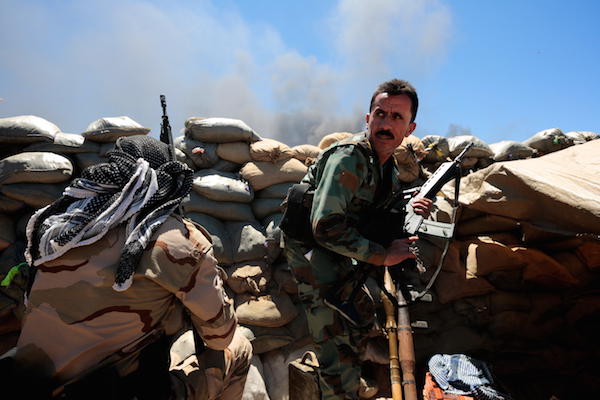
With KRG’s Peshmerga forces engaging in the war against the Islamic State, they quickly came to play a central role throughout the upper parts of Iraq. The KRG fighting forces were already fairly well supplied by Western interests. To further balance the fortunes of war, with the relatively small number of fighters at the KRG’s disposal in mind, Western support intensified further.
The Kurdish Peshmerga would secure Kirkuk province, meaning that the KRG controlled one of the largest oil field areas in the region. These oil fields presently produce an estimated 550,000 barrels a day of crude, and represent the bulk of Iraq’s oil reserves. As the war against the Islamic State grinded on, the resources of the Iraqi military were stretched to the brink, and so the KRG remained in control of Kirkuk. Even though an oil revenue sharing agreement between Baghdad and Erbil was in place, it was Erbil that received the lion’s share of the profits. This made Baghdad ill at ease, but it saw no realistic way in which it could be rectified.
In essence, the incursion by the Islamic State had allowed the KRG and Barzani to become significantly better funded, more influential, and able to establish control of the Kurdish region of Iraq.
Meanwhile in Syria – the Kurdish YPG and PYD
For over a hundred years, the Barzani tribe has been one of the dominant Kurdish tribes, and therefore enjoys a default leadership position. While the battlefield successes of Iraqi Kurdistan’s Pashmerga forces meant that Barzani’s region was relatively safe from the Islamic State (with the added benefit that he now controlled vast natural resources), similar successes of other Kurdish groups, largely unaffiliated with Barzani, gravely concerned him.
Chiefly among those was the Syrian Kurdish Democratic Union Party (PYD), its military wing, the People’s Protection Units (YPG), and the US-backed Syrian Democratic Forces (SDF) coalition. Allies of necessity to the West, these groups achieved immense battle successes, resulting in considerable popularity in the West.
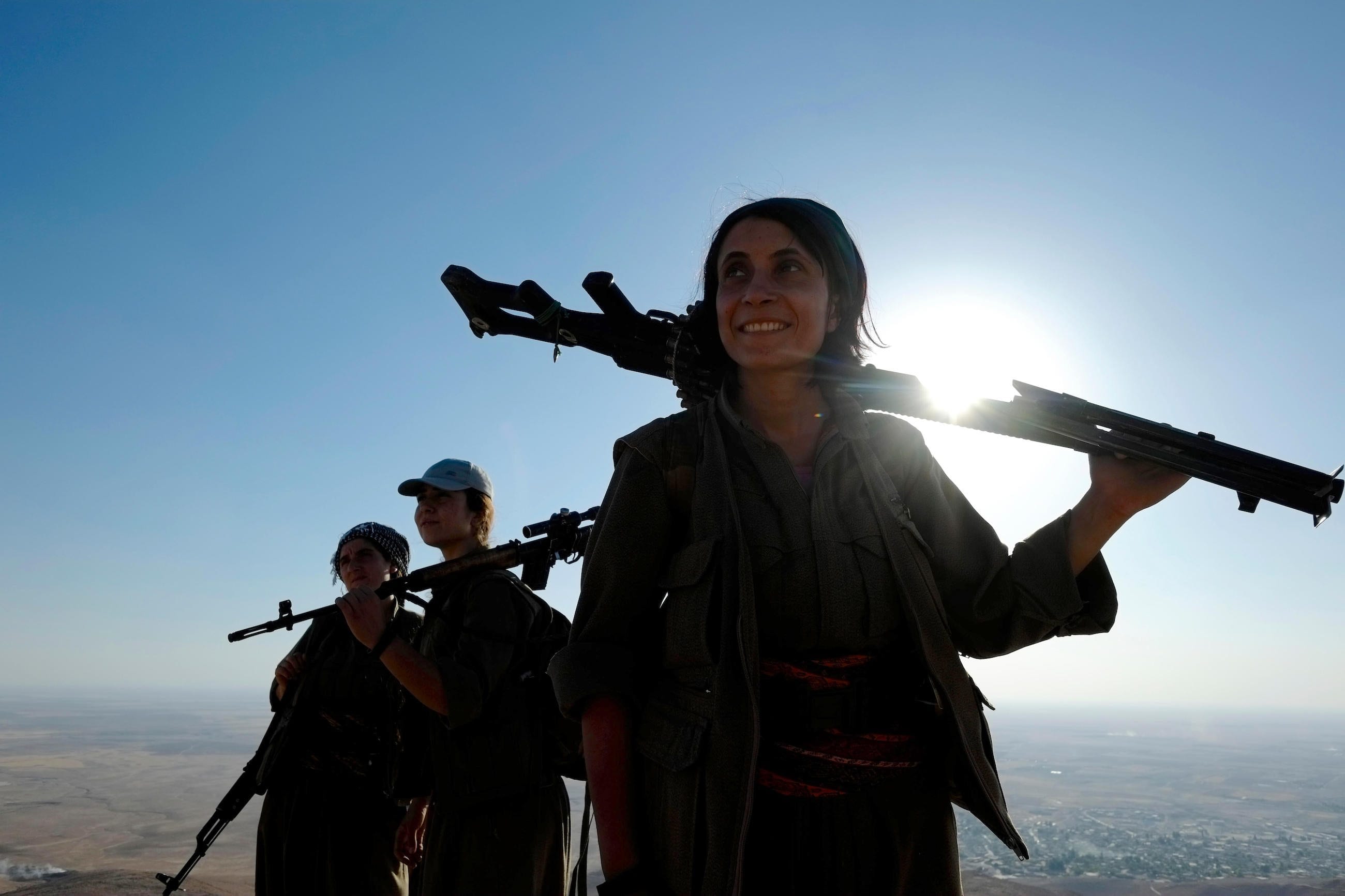
The SDF and PYD also achieved enormous public relations successes by cooperating with embedded Western journalists, using the same public relations handbook that gave US military Special Operations units so much success in creating their public personas. As a result, the media coverage of the SDF and affiliated Kurdish causes is mostly positive in the international media. In the West, the words ‘Kurdish Fighter’ became an all-encompassing definition, and synonymous with battlefield heroism.
The Barzani Tribe vs. the Competition
The developments and successes against the Islamic State in Syria caused other Kurdish tribes, including those Kurdish military and political individuals not entrenched in the traditional tribal structure, to also emerge as leaders. Among these individuals, causes, and movements, Mas’oud Barzani is not seen as a necessity to lead a Kurdish nation. As a result of this, the KRG had little to no input in the creation of the de facto Kurdish state in Rojava, located in the Syrian borderland with Turkey. Instead, the primary Kurdish leaders that emerged in Rojava stemmed from the PYD, unaffiliated, and even at times opposing, Barzani’s KRG.
Barzani’s move is, in part, a response to the current international goodwill towards his Kurdish rivals. Barzani feared he would lose his central role in the Kurdish cause, and of the narrative.
This same fear is what the iconic Palestinian activist and military leader Yasser Arafat had, at one point, faced himself, when alternative Palestinian militant groups began emerging in Lebanon. This was in response to the failed attempts to overthrow the Jordanian government by a breakaway faction from Arafat’s PLO, the Black September Organization (BSO) in the 1960s. As a result, while the Lebanese Civil War raged, the Palestinians fought a war amongst themselves on the very same Beirut streets. In the end, Arafat was forced to flee Lebanon, and nearly two decades passed before he was able to regain his former stature within the Palestinian movement. Barzani does not want to suffer that same setback. At 71 years of age, he saw his time running out.
I call upon you to convey the oppressed voice and peaceful message of the Kurdistan Region to the worldhttps://t.co/dffGKakNAM
— Masoud Barzani (@masoud_barzani) October 20, 2017
Using the referendum as a catalyst, Barzani sought to regain and spearhead absolute control of the Kurdish independence narrative, thus ensuring his role in it. In order to do this, he had to take it beyond the breaking point, and hope he could still control the situation as it began to spiral out of apparent control. Only then could Barzani play the role of a great moderate, mediator, and ultimately — statesman. To do this he needed to be able to create circumstances where he would be perceived as compromising, and ultimately to fall upon his own sword.
A binding referendum of independence was the perfect vehicle for Barzani’s evolutionary step. Not only would it provide a short term surge in nationalistic spirit, with Barzani seen as synonymous to the cause, but it would also in the long term provide the KRG with increased independence, authority, and financial remuneration from all. When all is said and done, Barzani would be able to pursue a more national and regional role, instead of the localized role he had played for so many years.
All he had to do was stir the pot, and then allow the referendum to die a quick death.
This, in turn, would strengthen the KRG’s position throughout the Iraqi political spectrum, allowing for a much stronger KRG to emerge with demands of independence – only, at a more suitable time. This option would grant Barzani’s (as well as Baghdad’s) allies in the West a mutually beneficial solution. After all, the Western powers do not oppose the notion of Kurdish independence, just the timing of the referendum.
When Kurdistan lost Kirkuk, nearly 30% of its territory and half of its oil revenues, sending thousands upon thousands to flee to the relative safety of Kurdistan, it was all part of Barzani’s gambit. By throwing himself upon his sword and “resigning” from office – an act that would have been necessary no matter – Barzani ensured his legacy, legitimacy, and future as one of the few statesmen in modern day Middle East.
John Sjoholm, Lima Charlie News
[Edited by Anthony A. LoPresti]
John Sjoholm is Lima Charlie’s Middle East Bureau Chief, Managing Editor, and founder of the consulting firm Erudite Group. A seasoned expert on Middle East and North Africa matters, he has a background in security contracting and has served as a geopolitical advisor to regional leaders. He was educated in religion and languages in Sana’a, Yemen, and Cairo, Egypt, and has lived in the region since 2005, contributing to numerous Western-supported stabilisation projects. He currently resides in Jordan. Follow John on Twitter @JohnSjoholmLC
Lima Charlie World provides global news, featuring insight & analysis by military veterans, intelligence professionals and foreign policy experts Worldwide.
For up-to-date news, please follow us on twitter at @LimaCharlieNews
In case you missed it:

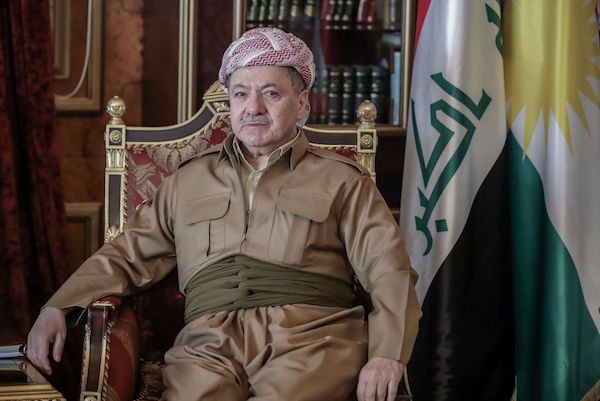
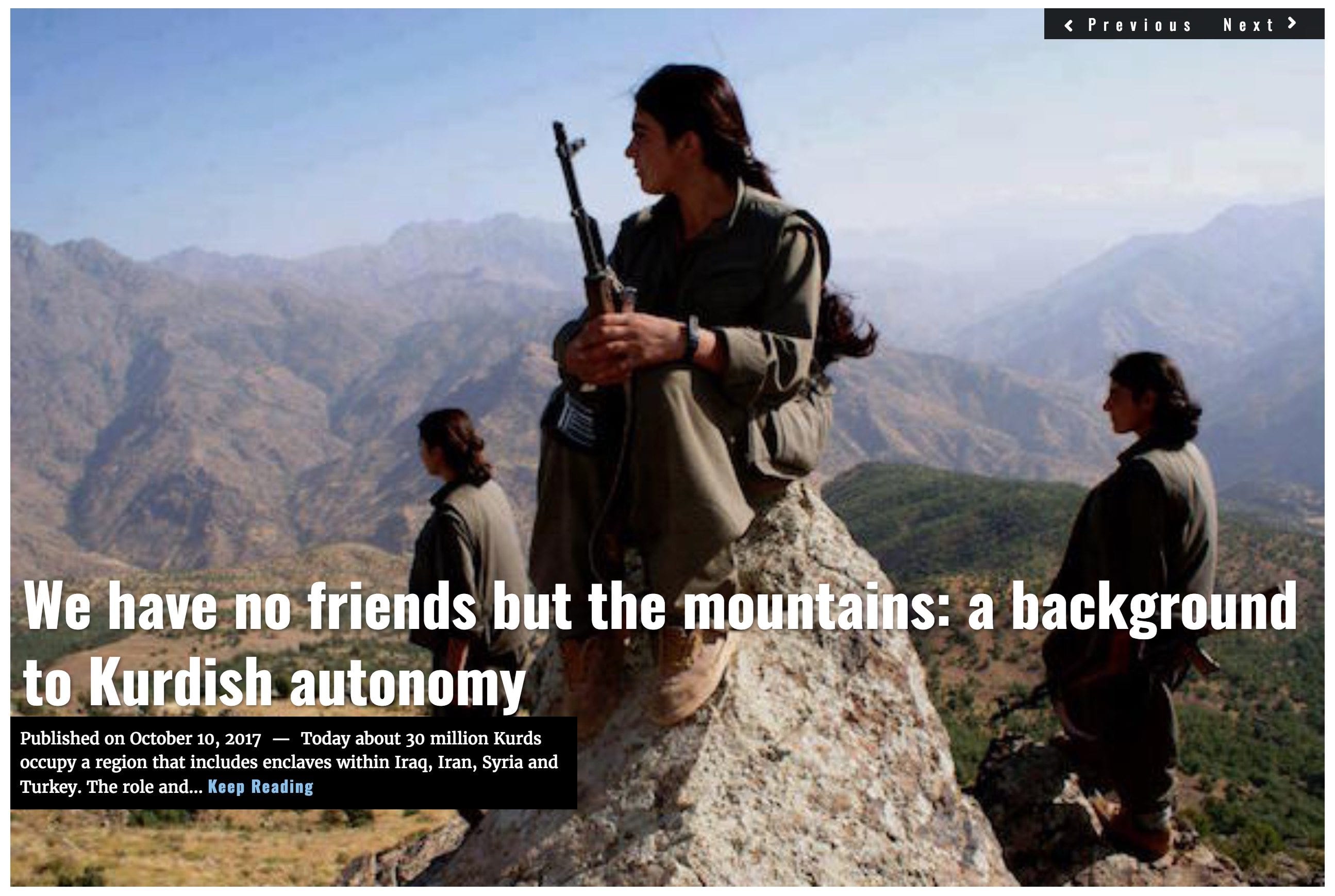
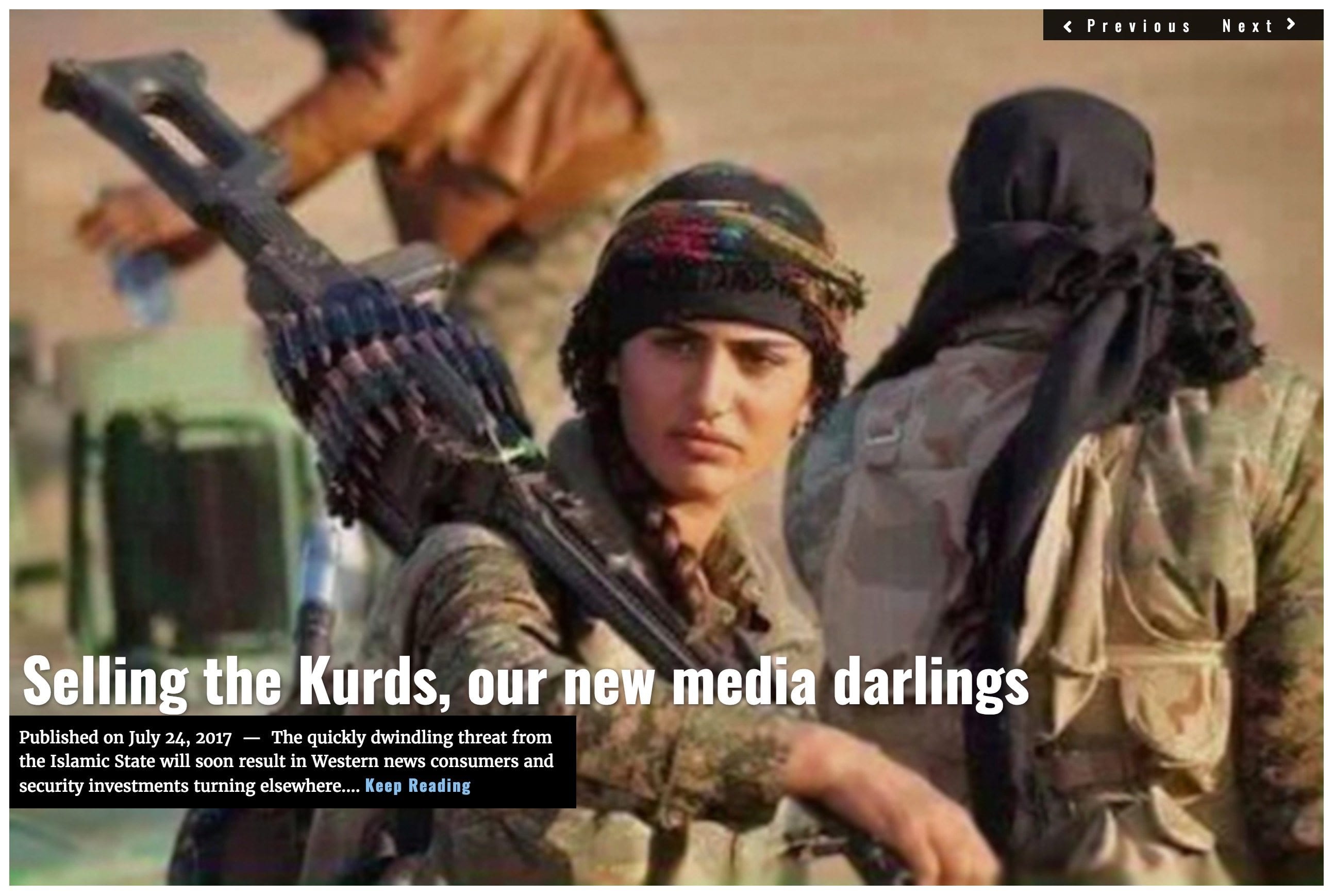

![STRATEGIC OPTION | Syrian Endgame - The Hard Truth [Lima Charlie News][Photo: Bulent Kilic]](https://limacharlienews.com/wp-content/uploads/2019/05/STRATEGIC-OPTION-Syrian-Endgame-e1558501175322-480x384.png)
![Image The Alevis Dilemma [Lima Charlie News]](https://limacharlienews.com/wp-content/uploads/2019/04/Alevis-Erdogan-480x384.png)
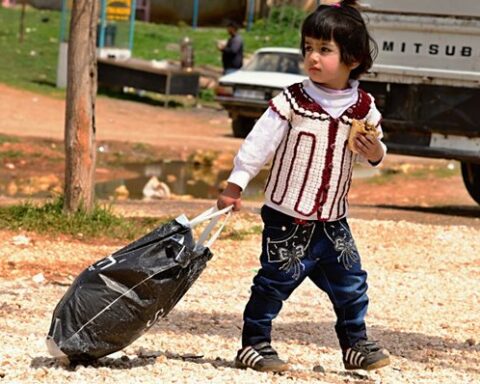
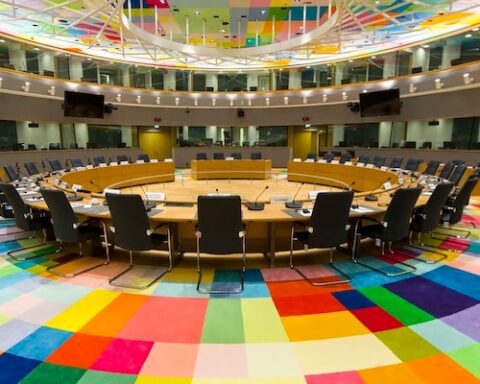

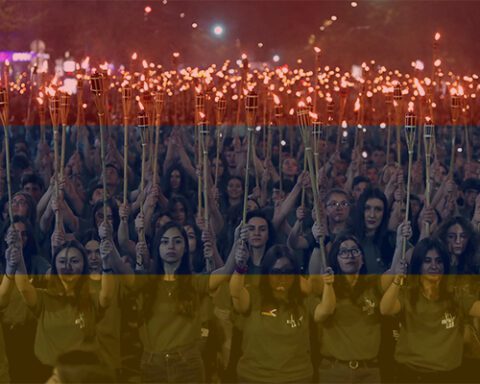

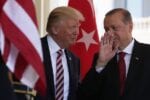
![STRATEGIC OPTION | Syrian Endgame - The Hard Truth [Lima Charlie News][Photo: Bulent Kilic]](https://limacharlienews.com/wp-content/uploads/2019/05/STRATEGIC-OPTION-Syrian-Endgame-e1558501175322-150x100.png)